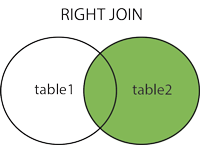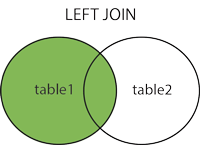xargs --null --max-args=1 echo < /proc/13200/environ
Rants and ravings of a semi-autistic developer who has a hard time remembering idiotic nonsense details. Why remember it, when you know where to find it.
Saturday, November 7, 2015
/proc/pid/environ contents readable
Tuesday, October 27, 2015
Netcat testing port connectivity
-bash-4.1$ telnet 10.75.20.102 8471 Trying 10.75.20.102... Connected to 10.75.20.102. Escape character is '^]'. ^CConnection closed by foreign host. -bash-4.1$ nc 10.75.20.102 8471 ^C -bash-4.1$ nc -vz 10.75.20.102 8471 Connection to 10.75.20.102 8471 port [tcp/pim-port] succeeded! -bash-4.1$Or in a loop
MBP:~ username$ for i in `seq 60 75`; do ssh username@mrh009$i.company.com 'nc -vz 10.75.20.102 8471'; done; Connection to 10.75.20.102 8471 port [tcp/pim-port] succeeded! Connection to 10.75.20.102 8471 port [tcp/pim-port] succeeded! Connection to 10.75.20.102 8471 port [tcp/pim-port] succeeded! Connection to 10.75.20.102 8471 port [tcp/pim-port] succeeded! Connection to 10.75.20.102 8471 port [tcp/pim-port] succeeded! Connection to 10.75.20.102 8471 port [tcp/pim-port] succeeded! Connection to 10.75.20.102 8471 port [tcp/pim-port] succeeded! Connection to 10.75.20.102 8471 port [tcp/pim-port] succeeded! Connection to 10.75.20.102 8471 port [tcp/pim-port] succeeded! Connection to 10.75.20.102 8471 port [tcp/pim-port] succeeded! Connection to 10.75.20.102 8471 port [tcp/pim-port] succeeded! Connection to 10.75.20.102 8471 port [tcp/pim-port] succeeded! Connection to 10.75.20.102 8471 port [tcp/pim-port] succeeded!
Thursday, October 22, 2015
Installing authorized_keys over a range of hosts automatically
$ for i in `seq 60 75`; do ssh -o "StrictHostKeyChecking no" username@mrh009$i.host.com '[ ! -e .ssh ] && mkdir .ssh; echo "ssh-rsa AAAAB3NzaC1yc2EAAAABIwAAAIEArnIJhZCiJz8arKHd1C5gi2B7G22VuMeqDGcj8jv+sdfsdfsdfsdfsdfsdfsfdsfNBekqviSUFXiG1cBNpNxaAstOWyWmKaS1oefeNJ5waihlzR5V9QTTdBCrYavHj4viPMLWfm70eOhZhOzXQjl4x/xSrh/sadfasdfasdf= " > .ssh/authorized_keys && chmod 700 .ssh '; done;
Tuesday, August 4, 2015
Monday, July 6, 2015
ssh-keygen without prompts and publishing known_hosts
Self provisioning PKI infrastructure and auto registration destination known_hosts
# Generating PKI for publishing the build ssh-keygen -q -t dsa -N '' -f /opt/jenkins/.ssh/id_dsa # Registering the mvndev.mycompany.com target ssh-keyscan -H destination.com,10.76.20.41 >> /opt/jenkins/.ssh/known_hosts
Labels:
ssh,
ssh-keygen,
ssh-keyscan,
ssl
Sunday, May 24, 2015
Openshift, Plackware and Dancer2 with Free account
rhc app delete tmgt --confirm rhc app create tmgt -t https://raw.github.com/debug-ito/openshift-cartridge-plack/release_0.1.0/metadata/manifest.ymlLogin on rhc and install the require perl modules like this:
export PERL_CPANM_OPT="-L $HOME/plack/local" cpanm install Dancer2 cpanm install DBD::SQLite cpanm install Starman --force cpanm install Moose --force cpanm install PDF::Reuse --force cpanm install Date::Formatter --force cpanm install Image::Info --force cpanm String::CRC32 Math::Round Math::Polygon cpanm Log::Log4perl Cache::FileCacheRepeat this command and the above statement to get your dependencies sorted out ...
perl app.psgiNext I had to add variables to find the config file... *plack_config.pl*
## This script is executed to set environment variables for control
## actions such as starting and stopping your app.
## See https://metacpan.org/pod/plackup for detail.
$ENV{PLACK_ENV} = "development";
## If you prefer Starman, for example, uncomment the following line
## and put "requires 'Starman';" into cpanfile.
$ENV{PLACK_SERVER} = "Starman";
$ENV{DANCER_CONFDIR} = $ENV{OPENSHIFT_REPO_DIR};
$ENV{PERL5LIB} = $ENV{OPENSHIFT_REPO_DIR} . "/lib:" . $ENV{PERL5LIB} ;
Thursday, April 2, 2015
Importing XML file in an XML file...
You could use an external (parsed) general entity.
You declare the entity like this:
Then you reference it like this:
A complete example:
When the XML parser reads the file, it will expand the entity reference and include the referenced XML file as part of the content.
If the "otherFile.xml" contained:
<baz>this is my content</baz>
Then the XML would be evaluated and "seen" by an XML parser as:
A few references that might be helpful:
|
Friday, March 27, 2015
Using svn 1.8 in eclipse on Mac OS X
sudo -s
Create a symbolic link to your Xcode toolchain:
ln -s /Applications/Xcode.app/Contents/Developer/Toolchains/XcodeDefault.xctoolchain/ /Applications/Xcode.app/Contents/Developer/Toolchains/OSX10.10.xctoolchainDownload SVN 1.8 sources
cd ~/Downloads/
curl -o subversion-1.8.9.tar.gz http://archive.apache.org/dist/subversion/subversion-1.8.9.tar.gz
tar -xvf subversion-1.8.9.tar.gzCompile SVN 1.8 from sources
cd ~/Downloads/subversion-1.8.9
sh get-deps.sh serf
cd serf/
./configure
make
make install
export CC=/Applications/Xcode.app/Contents/Developer/Toolchains/OSX10.10.xctoolchain/usr/bin/cc
cd ..
./configure --prefix=/usr/local --enable-javahl --with-serf=/usr/local/serf
make
sudo make install
make javahl
sudo make install-javahl$ cd /Library/Java/Extensions /Library/Java/Extensions $ sudo ln -sf /usr/local/lib/libsvnjavahl-1.dylib /Library/Java/Extensions $ sudo ln -sf /usr/local/lib/libsvnjavahl-1.jnilib /Library/Java/Extensions $ ls -l total 16 lrwxr-xr-x 1 root admin 35B 29 Jun 13:59 libsvnjavahl-1.dylib@ -> /usr/local/lib/libsvnjavahl-1.dylib lrwxr-xr-x 1 root admin 36B 29 Jun 13:59 libsvnjavahl-1.jnilib@ -> /usr/local/lib/libsvnjavahl-1.jnilib
Sunday, February 1, 2015
SQL Right Join
SQL RIGHT JOIN Keyword
The RIGHT JOIN keyword returns all rows from the right table (table2), with the matching rows in the left table (table1). The result is NULL in the left side when there is no match.
SQL RIGHT JOIN Syntax
SELECT column_name(s)
FROM table1
RIGHT JOIN table2
ON table1.column_name=table2.column_name;
FROM table1
RIGHT JOIN table2
ON table1.column_name=table2.column_name;
or:
SELECT column_name(s)
FROM table1
RIGHT OUTER JOIN table2
ON table1.column_name=table2.column_name;
FROM table1
RIGHT OUTER JOIN table2
ON table1.column_name=table2.column_name;
PS! In some databases RIGHT JOIN is called RIGHT OUTER JOIN.

Labels:
sql
SQL Left Join
SQL LEFT JOIN Keyword
The LEFT JOIN keyword returns all rows from the left table (table1), with the matching rows in the right table (table2). The result is NULL in the right side when there is no match.
SQL LEFT JOIN Syntax
SELECT column_name(s)
FROM table1
LEFT JOIN table2
ON table1.column_name=table2.column_name;
FROM table1
LEFT JOIN table2
ON table1.column_name=table2.column_name;
or:
SELECT column_name(s)
FROM table1
LEFT OUTER JOIN table2
ON table1.column_name=table2.column_name;
FROM table1
LEFT OUTER JOIN table2
ON table1.column_name=table2.column_name;
PS! In some databases LEFT JOIN is called LEFT OUTER JOIN.

Labels:
sql
Friday, January 2, 2015
Recover from Eclipse crash.... copy paste
I encountered a horrible sight; eclipse would start and all of a sudden just crash.
I first tried the obvious solution, to clean out the workspace.

 If you do not see your projects just make sure your Deselect Working Sets
If you do not see your projects just make sure your Deselect Working Sets

./eclipse -cleanNope, no go, still eclipse kept crashing. Ugh, I fell into despair, all those key-binds and spring templates, all gone. So, rationally I hopped on to #eclipse on irc.freenode.net to get some feed back on my situation. Rcjsuen was kind enough to provide the answer that would solve my problem. The solution was fairly straight forward. I had to remove org.eclipse.core.resources from my workspace.
cd ~/Documents/workspace/.metalog/.plugins rm -rf org.eclipse.core.resourcesBy removing org.eclipse.core.resources, you clear out all the project metadata from your workspace. However, don’t worry, once you start eclipse you can just go to “File -> Import -> import eclipse projects” and re-import all your workspace projects.

 If you do not see your projects just make sure your Deselect Working Sets
If you do not see your projects just make sure your Deselect Working Sets

Subscribe to:
Posts (Atom)